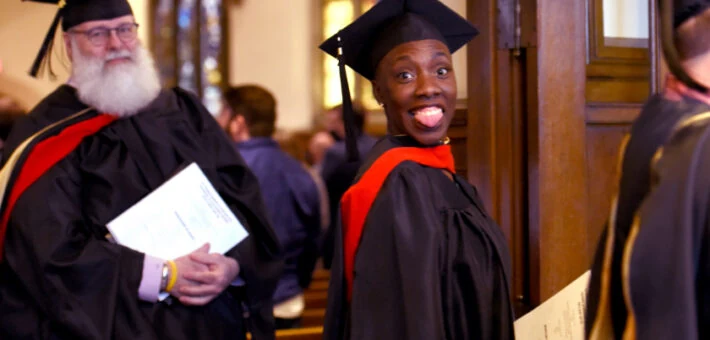Certificate in Spiritual Direction
Prepare Yourself to Support Others
United’s Certificate in Spiritual Direction program will prepare you with the required knowledge and skills to effectively support others in their personal spiritual development in both one-on-one and group settings. This program addresses the increasing demands for credentials and competency in the field.
As a graduate of this program, you can pursue a career either in non-ordained church ministry with a specialty in spiritual direction or a spiritual direction vocation outside of the congregational context. Settings for spiritual directors include churches and other congregations, retreat centers, wellness centers, and independently in your home or office. The contemplative skills gained through participation in this program are transferable to a wide variety of other helping professions.
If you also would like to receive more comprehensive ministerial training, check out the MAL in Spiritual Direction or the MDiv in Spiritual Direction.
Program Details
Required Credits
To graduate with a Certificate in Spiritual Direction, you will be required to complete a total of 15 credits at a reduced tuition per credit hour. This typically involves the completion of five 3-credit courses, including a practicum. All courses can be applied towards the completion of United’s MAL or MDiv in Spiritual Direction.
Time to Complete
This 15-credit program can be completed within 2 years on a part-time course load. Certificate students will be required to participate in ongoing sessions with a spiritual director during the program and create and carry out a spiritual formation plan under their direct supervision.
Distance Learning
All Spiritual Direction courses are offered synchronously only. Only the required elective course can be taken asynchronously.
A graduate of the Certificate in Spiritual Direction program will be able to:
- Apply deep listening, their way of knowing, and their spiritual life to the use of discernment models used to guide others to go deeper into personal and communal wholeness and healing.
- Apply deep listening, evocative questions, presence, silence, compassion, and empathy to the soul care and spiritual guidance of others.
- Apply the Guidelines for Ethical Conduct to their professional role as a spiritual director/companion.
- Effectively participate in a one-to-one spiritual direction/companionship session.
- Effectively lead a group spiritual direction/companionship session.
- Effectively teach a contemplative spiritual practice.
- Demonstrate skills and articulate strategies for providing effective spiritual care for those experiencing trauma in a variety of given situations.
Program Course Guide Sheet
For Academic Year 2024-2025

Want to Learn More?
Fill out the form below and a member of our Admissions team will be in touch soon.
